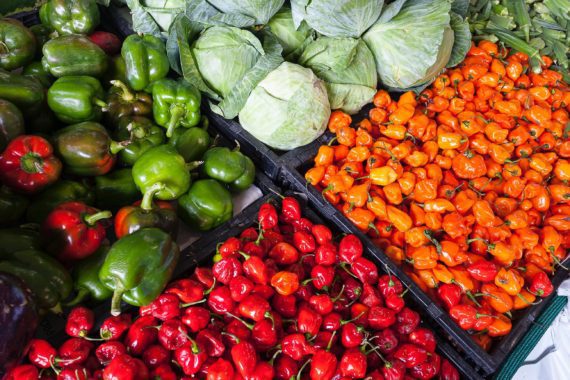Hundreds of advocates, business leaders, and government officials converged late last month in Washington, D.C., to attend a conference on hunger, nutrition, and health – something that hasn’t happened since the Nixon administration.
The gathering comes at a momentous time in our nation – and our world – as skyrocketing food prices, conflict, and record drought are fueling a global hunger crisis. Closer to home – too many children go to bed hungry, and people of color are disproportionately impacted by hunger due to structural inequities.
The Biden administration wants to change that.
At the conference, the administration unveiled a new national strategy for ending hunger in the United States by 2030. It promises to be transformative with a clarion call for everyone to get involved: federal, state, Tribal, local and territory governments; the private sector, academia; and nonprofit and community groups as well.
And that’s where you – our Bread advocates – come in. In fact, you’ve already played a significant a role.
For more than a year, Bread for the World and its members worked with faith leaders to convene local and regional conversations to urge the Biden administration and Congress to host this conference. Bread also sent a letter to President Biden with signatures of more than 400 local pastors and faith leaders calling for the conference.
Leading up to the conference, the White House and agencies spent months hosting listening sessions to help develop the national strategy. Bread for the World hosted a partner-led convening with 35 of its most active faith leaders to hear their input and feedback for the conference.
Many of the policy priorities laid out in the national strategy were recommendations raised by our network of faith leaders such as expanding the Supplemental Nutrition Assistance Program (SNAP) to currently ineligible individuals, tackling food waste, and advancing economic security for families.
And next year, you’ll be able to advocate on those issues through the reauthorization of the farm bill.
“I’m proud that our country is taking these needed steps to generate political will grounded in lived experience and evidence-based policy,” said Bread president Rev. Eugene Cho, who attended the conference. “If we can work together, across sectors and faiths and party lines, we have a real opportunity to end hunger and improve lives and livelihoods in America.”
What’s in the National Strategy?
The national strategy is a roadmap to meet this critical goal of ending hunger in the U.S. by 2030. It calls for actions that the federal government will take administratively, several proposals that will require congressional approval, and measures for non-government entities to take.
First, the plan calls for advancing economic security by reinstating the fully refundable child tax credit, expanding the earned income tax credit, and raising the minimum wage to $15 an hour, which are foundational to human flourishing.
Second, it calls for investing in child nutrition programs by providing free, healthy school meals for all by 2032 and expanding the Summer Electronic Benefits Transfer program so children don’t miss meals when not in school.
Third, it calls for expanding SNAP eligibility to underserved populations such as those formerly incarcerated and individuals living in U.S. territories and providing incentives to support purchasing more fruits and vegetables for SNAP recipients through the USDA Gus Schumacher Nutrition Incentive Program.
Lastly, it calls for supporting food sovereignty, improving access to traditional foods, and ensuring Tribal communities are equitably served in federal programs. The plan also calls for reducing barriers to food recovery.
What Is Next?
“What happens today is important, but what happens tomorrow is even more important,” said Rep. Jim McGovern (D-Mass.) at the conference. He was one of the key congressional leaders who pushed for the hunger conference.
Many of the proposed ideas laid out in the national strategy will require congressional approval. The reauthorization of the farm bill – slated for next year – is one legislative vehicle that could be used to expand SNAP eligibility to underserved populations, expand incentives for SNAP recipients, and reduce food waste.
However, there are immediate steps the administration plans to take around reducing food waste and improving access to federal nutrition programs. For example, it will direct the Treasury Department to clarify charitable deduction rules for businesses donating leftover food – to ensure that business don’t just throw food away.
The Agriculture Department will work with states and other federal agencies to increase awareness of the availability of federal nutrition programs and help enroll more eligible individuals.
This is only the beginning. We’re hopeful that a lot of the actions laid out in the national strategy come to fruition – especially with your advocacy – and that an end to hunger is finally realized by 2030.
Sergio Mata-Cisneros is an advocacy and policy analyst at Bread for the World.



